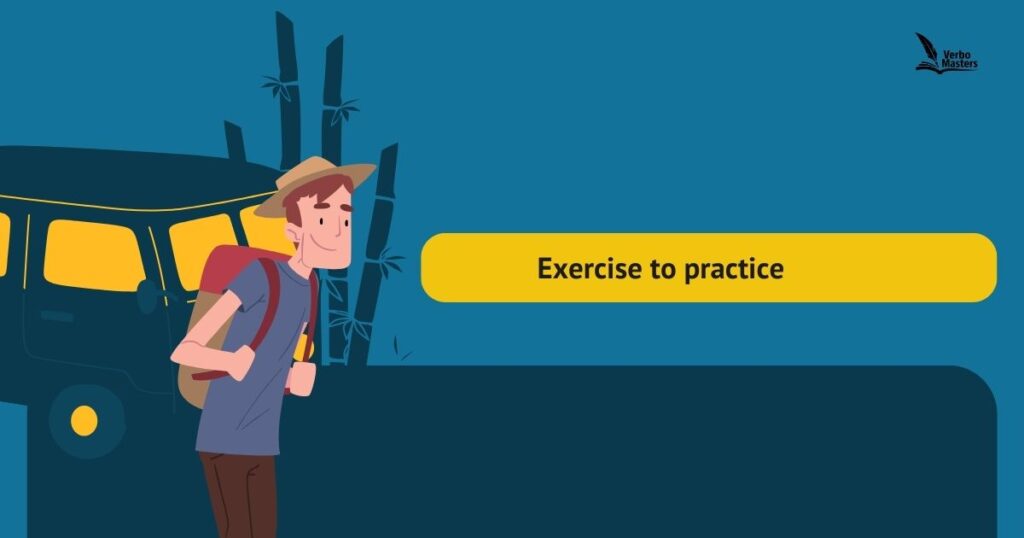Wasting time is something we all do now and then, whether we’re stuck in traffic or scrolling endlessly on our phones. To describe these moments, the English language has plenty of fun and colorful idioms.
These idioms capture how time can slip away without notice. From “twiddling your thumbs” to “beating a dead horse,” they show how easily we can lose time without meaning to. Let’s explore 35 idioms that express the art of doing absolutely nothing useful!
You can also read; 45 Idioms for Death
Idioms for Wasting Time
1. Kill time
Meaning: Do something unimportant while waiting.
Sentence: I played a game on my phone to kill time at the airport.
Other way to say: Pass time.
2. Fiddle around
Meaning: Do small, aimless tasks.
Sentence: He fiddled around in the garage instead of working.
Other way to say: Mess around.
3. Burn daylight
Meaning: Waste useful time, especially daylight.
Sentence: Stop chatting—we’re burning daylight!
Other way to say: Waste time.
4. Beat around the bush
Meaning: Avoid getting to the point.
Sentence: Stop beating around the bush and tell me the truth.
Other way to say: Stall.
5. Drag one’s feet
Meaning: Delay doing something on purpose.
Sentence: She dragged her feet when it came to finishing homework.
Other way to say: Procrastinate.
6. Dawdle
Meaning: Move or act slowly.
Sentence: Don’t dawdle on the way to school!
Other way to say: Linger.
7. Twiddle your thumbs
Meaning: Be idle or bored.
Sentence: He just twiddled his thumbs while waiting.
Other way to say: Sit around.
8. Goof off
Meaning: Avoid work or responsibilities.
Sentence: The team was goofing off instead of preparing.
Other way to say: Slack off.
9. Kill two birds with one stone
Meaning: Achieve two goals at once (sometimes used while passing time).
Sentence: I listened to a podcast while cleaning—killed two birds with one stone.
Other way to say: Be efficient (ironically, when contrasted with wasting time).
10. Spin your wheels
Meaning: Work hard but make no progress.
Sentence: I was spinning my wheels on this project all day.
Other way to say: Get nowhere.
11. Blow off steam
Meaning: Do something relaxing to release stress.
Sentence: I went for a walk to blow off steam.
Other way to say: Unwind.
12. Let the grass grow under your feet
Meaning: Be inactive or slow to act.
Sentence: Don’t let the grass grow under your feet—make a move!
Other way to say: Hesitate.
13. Make a mountain out of a molehill
Meaning: Overreact to a small issue.
Sentence: Stop wasting time making a mountain out of a molehill.
Other way to say: Overthink.
14. Take forever
Meaning: Move or act very slowly.
Sentence: He takes forever to get ready.
Other way to say: Be slow.
15. Beat the clock
Meaning: Finish before a deadline.
Sentence: We beat the clock by finishing early.
Other way to say: Get ahead of schedule.
16. Chase your tail
Meaning: Do a lot but accomplish nothing.
Sentence: I’ve been chasing my tail all day with no results.
Other way to say: Waste effort.
17. Bide your time
Meaning: Wait patiently for the right moment.
Sentence: He bided his time until he could speak.
Other way to say: Wait it out.
18. Throw away time
Meaning: Spend time on something pointless.
Sentence: I threw away hours on that game.
Other way to say: Waste time.
19. Laze around
Meaning: Be lazy or inactive.
Sentence: We lazed around all Sunday.
Other way to say: Lounge.
20. Procrastinate
Meaning: Delay doing something.
Sentence: She procrastinated instead of studying.
Other way to say: Stall.
21. Piddle away
Meaning: Waste something in small amounts.
Sentence: He piddled away the afternoon doing nothing.
Other way to say: Squander.
22. Waste your breath
Meaning: Say something pointless.
Sentence: Don’t waste your breath trying to convince her.
Other way to say: Talk in vain.
23. Take your sweet time
Meaning: Move slowly, often too slowly.
Sentence: He took his sweet time getting to the meeting.
Other way to say: Be leisurely.
24. Do nothing
Meaning: Be inactive.
Sentence: I did nothing all day, and it felt great.
Other way to say: Be idle.
25. Overthink things
Meaning: Think too much and do too little.
Sentence: She overthinks things instead of acting.
Other way to say: Second-guess.
26. Slack off
Meaning: Reduce effort or performance.
Sentence: Don’t slack off during busy season!
Other way to say: Laze.
27. Putter around
Meaning: Do small, aimless tasks.
Sentence: He puttered around the house all morning.
Other way to say: Tinker.
28. Pass the buck
Meaning: Shift responsibility instead of acting.
Sentence: Don’t pass the buck—solve the issue.
Other way to say: Avoid responsibility.
29. Waste time on small talk
Meaning: Talk without purpose.
Sentence: Let’s skip the small talk and get started.
Other way to say: Chitchat.
30. Doodle away time
Meaning: Waste time drawing or doing meaningless tasks.
Sentence: He doodled away the whole meeting.
Other way to say: Scribble idly.
31. Zone out
Meaning: Stop paying attention.
Sentence: I zoned out halfway through the lecture.
Other way to say: Daydream.
32. Hang around
Meaning: Linger with no purpose.
Sentence: We hung around the mall all day.
Other way to say: Loiter.
33. Waste time on gossip
Meaning: Talk idly about others.
Sentence: They wasted an hour gossiping.
Other way to say: Chat aimlessly.
34. Lose track of time
Meaning: Forget how much time has passed.
Sentence: I lost track of time while scrolling online.
Other way to say: Be unaware of time.
35. Wile away the hours
Meaning: Spend time pleasantly but unproductively.
Sentence: She wiled away the hours watching clouds.
Other way to say: Pass the time slowly.
Exercise to practice

📝 Fill in the blanks:
- Every weekend, he just __________ around the house without doing much.
- I was so bored at the airport, I had to __________ somehow.
- Stop __________ and tell me what really happened.
- She tends to __________ when it’s time to clean her room.
- I __________ watching YouTube and forgot the time.
- He always __________ instead of working during office hours.
- They were just __________, waiting for the movie to start.
- I usually __________ time on gossip at lunch breaks.
- You’re just __________—he’s not going to listen anyway.
- I __________ the entire day on Instagram and got nothing done.
- He’s known to __________ while pretending to fix things.
- The kids were __________ instead of starting their homework.
- I like to __________ by doodling during boring meetings.
- Don’t __________—we’re going to be late!
- She tends to __________ when there’s a tough decision to make.
- The project didn’t move forward. We were just __________.
- He __________ before making his move in the game.
- Sometimes I like to __________ doing absolutely nothing.
- We __________ in the coffee shop for hours with no real plan.
- I __________ scrolling TikTok until I realized it was midnight!
✅ Answers:
- putter
- kill time
- beating around the bush
- drag her feet
- lost track of time
- goofs off
- twiddling their thumbs
- waste
- wasting your breath
- piddled away
- fiddles around
- dawdling
- doodle away time
- take your sweet time
- overthinks things
- spinning our wheels
- bided his time
- laze around
- hung around
- zoned out
FAQ’s
What does “wasting time” mean in idiomatic expressions?
Wasting time in idioms usually refers to spending time doing unproductive or pointless activities. These phrases creatively express the idea of losing valuable time.
Are idioms for wasting time used in formal writing?
Most idioms for wasting time are informal and used more in speech or casual writing. In formal writing, it’s better to use direct terms like “inefficient” or “time-consuming.”
Can idioms about wasting time have positive meanings?
Sometimes, yes. Idioms like “wile away the hours” or “blow off steam” can imply restful or relaxing time spent, which isn’t always seen negatively.
Are these idioms used worldwide?
While many are common in English-speaking countries, idioms often vary by region. Different cultures have their own unique ways to express wasting time.
How can I learn to use these idioms naturally?
The best way is through practice—reading, speaking, and writing with them in context. Try using a few in your everyday conversations to get comfortable.
Conclusion
Wasting time is something we all do, whether it’s scrolling through social media or daydreaming during work. Idioms give us creative ways to describe those moments. They help us talk about delays and distractions in a more fun or relatable way.
Phrases like “twiddle your thumbs” or “drag your feet” make everyday laziness sound more colorful. Some idioms even make it feel okay to take a break, like “blow off steam.” Learning these expressions can make your conversations more lively and engaging.

I’m John Smith, a language enthusiast dedicated to helping writers, students, and professionals master the art of clear and effective communication. Whether you’re looking for grammar tips, writing guides, or common mistake corrections, you’ll find valuable insights to improve your language skills. Let’s make grammar simple and fun!

